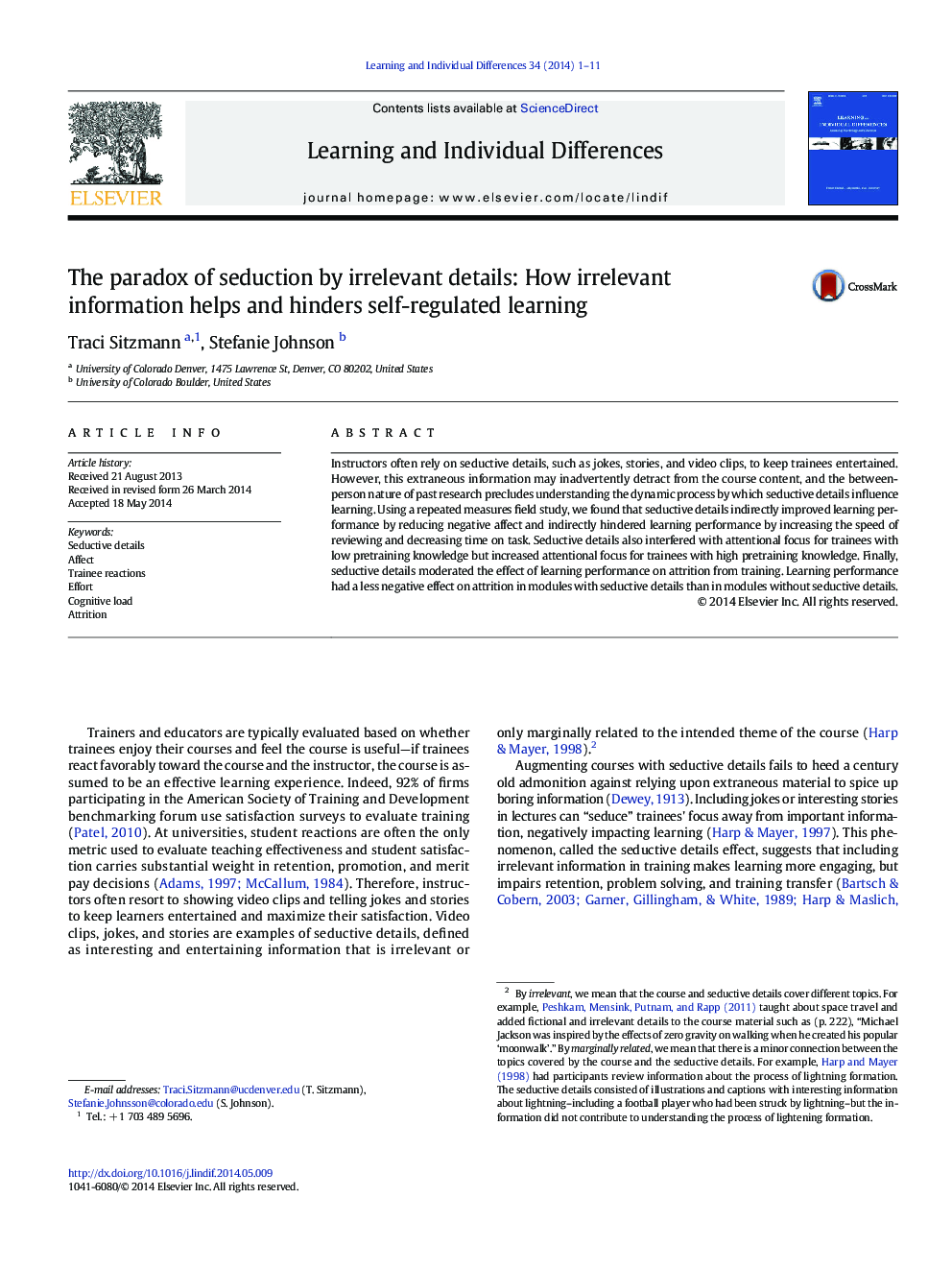| کد مقاله | کد نشریه | سال انتشار | مقاله انگلیسی | نسخه تمام متن |
|---|---|---|---|---|
| 364775 | 621091 | 2014 | 11 صفحه PDF | دانلود رایگان |
• Instructors rely on seductive details, such as jokes, to keep trainees entertained.
• This extraneous information may inadvertently detract from the course content.
• Seductive details indirectly improved learning by reducing negative affect.
• Seductive details indirectly hindered learning by decreasing time on task.
• Seductive details moderated attentional focus and the effect on learning on attrition.
Instructors often rely on seductive details, such as jokes, stories, and video clips, to keep trainees entertained. However, this extraneous information may inadvertently detract from the course content, and the between-person nature of past research precludes understanding the dynamic process by which seductive details influence learning. Using a repeated measures field study, we found that seductive details indirectly improved learning performance by reducing negative affect and indirectly hindered learning performance by increasing the speed of reviewing and decreasing time on task. Seductive details also interfered with attentional focus for trainees with low pretraining knowledge but increased attentional focus for trainees with high pretraining knowledge. Finally, seductive details moderated the effect of learning performance on attrition from training. Learning performance had a less negative effect on attrition in modules with seductive details than in modules without seductive details.
Journal: Learning and Individual Differences - Volume 34, August 2014, Pages 1–11
